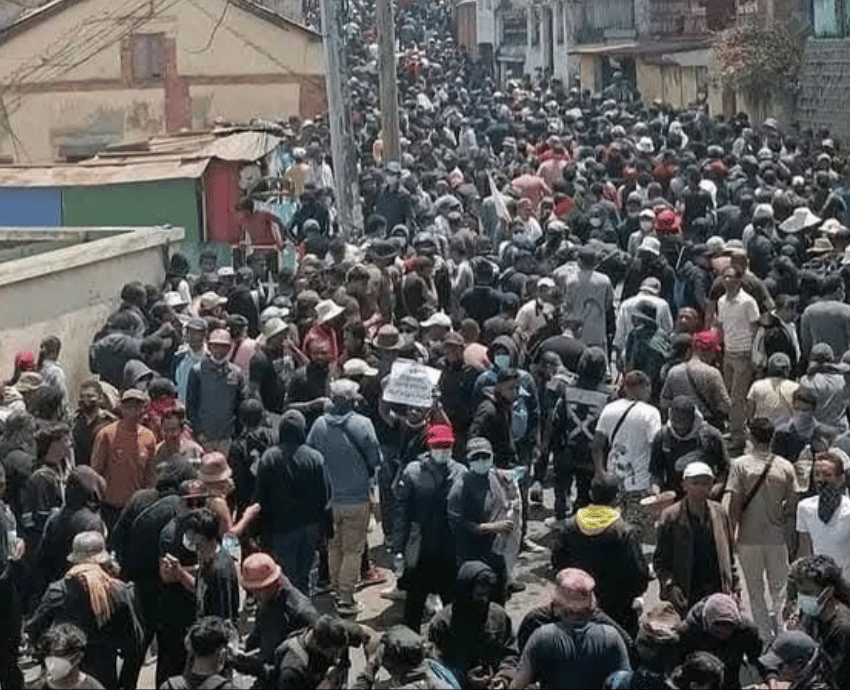
Weeks of youth-led demonstrations against water and power shortages in Madagascar have escalated into a full-blown political crisis, with an elite military unit announcing that it now commands the armed forces in what President Andry Rajoelina has described as a coup d’état.
Colonel Michael Randrianirina, acting commander of the elite CAPSAT military unit, announced on national radio, on October 14, that the military had taken control of state institutions and would form a transitional government. Randrianirina later told reporters that a committee led by the military would oversee the country for a transitional period of up to two years, working alongside a civilian government before organising new elections.
This is after the National Assembly voted overwhelmingly to impeach Rajoelina (130 in favour, 1 blank), just hours after he attempted to dissolve parliament by decree on October 13.
The mass protests, described as the largest in the country in years, initially forced Rajoelina to dissolve his government in late September. But the move did little to quell public anger. Instead, demands intensified, with protesters calling for the president’s resignation after years of economic hardship and deteriorating public services.
Rajoelina, who was scheduled to address the nation on Monday evening, was reportedly evacuated from the capital following an arrangement brokered with French President Emmanuel Macron, according to Radio France Internationale (RFI). French authorities later stated that they were not intervening in Madagascar’s internal crisis, which has continued to escalate since September 25.
The escalation reached a new level this week when members of CAPSAT, an elite army unit, declared they had taken control of the armed forces. The declaration followed reports that some military soldiers had joined the protesters in the streets of Antananarivo and other cities last week. CAPSAT had a major role in the 2009 political upheaval that first brought Rajoelina to power.
The president had previously attempted to restore order by appointing Army General Ruphin Fortunat Zafisambo as prime minister, following the dissolution of his civilian government. However, the appointment appears to have failed to stabilize the situation.
Many had condemned the government’s heavy-handed response to the demonstrations in recent weeks. Security forces used tear gas, arbitrary arrests, and live ammunition against largely peaceful protesters, leaving at least 22 people dead and over 100 injured, according to UN human rights officials.
Rajoelina’s 15-year grip on power, including his return to the presidency in 2018 and contested re-election in 2023, has done little to address Madagascar’s deep social and economic problems. The island nation remains one of the poorest in the world, with millions lacking reliable access to water, electricity, and essential services.
Popular anger, fueled by unemployment, corruption and inequality, has been building for years and exploded into the current wave of protests, largely driven by young people.
Now as the situation rapidly unfolds, Madagascar faces deep uncertainty. If the military solidifies its hold, it could mark the second successful coup in the country’s modern history.
With what is unfolding, whether this crisis ushers in a political transition and stability will depend on the coming days, but the anger driving Madagascar’s youth-led movement has already reshaped the nation’s political reality.
[Abridged from Peoples Dispatch.]